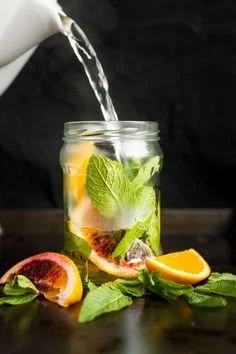Know Thyself
What I explore in this article on this hot summer morning is solid advice for everyone that I’m going to directly apply to homemaking. Managing our homes will be far more effective if we know ourselves. Do you know your strengths and weaknesses, your likes and dislikes, the way you process information, and what makes you anxious or calm? Do you know your health limitations and your brain power limitations?
Much of this type of self-knowledge takes many years to answer truthfully or have an actual solid feel for. We spend much of our youth trying out different things, things get muddled by sin and circumstance, and we get busy with our life and family. It takes maturity, experience, and a certain level of quiet to gain a solid sense of self. It also requires honest courage to examine your worst sides and face your ugliness. This takes time and grace. And, it also has a gifting level. Some of us are insightful about ourselves and some of us will struggle to see who we are. Then we’ll go through some traumatic situation and everything about us will change. We’ll be sanctified and that will change and shape us, too. Knowing ourselves is a lifelong process because we’re finite and corrupt. This is life in a fallen world as creatures.
How does knowing ourselves affect our homemaking?
Home is 100% routine and 100% flexible.
It is both.
It will help you accept and use the two sides of this coin if you understand yourself. I’m firmly planted in the 100% routine side. I love routine. Knowing this, I can see where I’m going to struggle and what I’m going to have to work on: I’m going to have to learn how to be flexible. This will be work. I’m going to want to be rigid about my day. I will have to put extra thought, prayer, and effort into managing the flexible side of homemaking.
Those of you on the flexible side of the coin must do the same diligent work with your routine. You can easily be so flexible nothing gets done and your family is on edge because there isn’t even the most basic of routines to signal the parts of the day.
I have to strive to not fill every segment of my day so that I have wiggle room to say yes. You have to work to build some structure so dinner is on the table.
When we know ourselves, we can utilize our strengths and shore up our weaknesses.
What about things that are just our personalities? I’m a story person. I love stories. I devour TV shows, books, movies, and history. I’m constantly telling stories in my head, living a dual life of reality and imagination. I have found over the years that it is important to me to have stories in my life. It enriches me, helps me process, and in general helps me stay more emotionally stable in real life. But I’ve also had to struggle through the fight of taking a gift and turning it into an idol where I shirk my duties for stories I’m passionate about, allowing my imagination more preeminence than the people in my life and the calling of the Lord.
Striking the right balance, avoiding the ditch of idolatry and the ditch of denial of God’s gifts requires stumbling practice. Put in the work and it yields the delightful gift of personality. My home is full of stories. Books are piled here and there. Shows and movies are watched and analyzed. Metaphors and illustrations are on hand in discussions. Imagination soothes the writhing world with a veneer of romanticism. Joy and delight in the mundane are encouraged. Stories give us so much. They’re an amazing tool.
Any gift God has given you can be turned into an addiction or it can be used to enrich your home and family. But you have to know yourself. Who are you? Who did God create when He created you? What likes and dislikes did He gift you with? Are you a cardigan person or a shorts person? Both? Are you flowers, vegetables, or both? Mountains or oceans? Both or neither?
Knowing ourselves as homemakers—from deep things like how we process emotions to what makes us smile—will help us better communicate with our families, better face worries and fears, and better manage our routine and flexibility.
What you want to avoid is using this knowledge as an excuse. We don’t believe our strengths or weaknesses are an excuse for sin. They will explain why you struggle with certain temptations but they should never be used to tap out of the fight. You can’t say, ‘well, I’m good at routine so everyone needs to stop asking me to be flexible,’ or ‘I’m good at being flexible so don’t ask me to work on a routine.’ Our finiteness and fallen natures aren’t an excuse not to strive. Knowing yourself will help you see your battles. Are you going to have to work to keep your mouth shut because you embrace confrontation? Are you going to have to work to open your mouth because you would willingly sacrifice everything to avoid conflict?
Maybe you have to work to have people over in your home. You struggle with perfection, conversation, under-committing, or over-committing. Maybe you have people over all the time and it becomes an excuse to avoid alone time with your thoughts or your spouse? Are you aware enough of yourself to see the need to push or deny yourself?
The main goal is to not allow our weaknesses to be an excuse and not allow our strengths to bully. It’s helpful to correctly identify cooking, cleaning, decorating or what have you isn’t something you enjoy or have a knack for. Now you can see where to get help and where you need to apply yourself. I struggle with cooking (very little natural talent), decorating (all the things!), and cleaning (what dirt? It’s fine). Some of that is apathy, some natural gifting, and some of it is an overly free delight. I don’t need everything. All of that has to be worked on. None of it is an excuse.
To be effective managers we need to be aware of ourselves. We need to see what we’re good at and use that, and we need to see where we’re weak and go to work. Other homemakers can help with this. Engage other women and find out how they think and deal with the two-headed hydra of routine and flexibility. Even if they come at it differently, or especially if they come at it differently, you can glean from them. One of my dearest friends is as flexible as I am routine. She helps me remember that the world isn't falling apart if everything isn’t perfectly planned and anticipated.
The other helpful and important thing here is husbands. Most of the couples I know have one half who is the routine and the other is flexible. Knowing which your husband is will help you understand what is important to him and how you can help him. I learned very early on that Price gets claustrophobic about plans and commitments but he’s great with systems. I have learned not to overwhelm him with my background plans and not to dump on him all that’s going on at once. I have also learned that if I’m stuck he can usually spot the solution real quick. Knowing myself and my desire to plan, but also knowing him and his desire for options has helped me learn not to over-plan my days. Sometimes that means I get my To-Do list done by 3pm and I can get to some things I’ve wanted to do. Other days it means being okay with him dismantling my To-Do list with either a spur-of-the-moment adventure or needing unplanned, unscheduled help. I still struggle with this, but I’m getting better at flexibility.
Husbands are the biggest influence in our homes. We help them by knowing ourselves. We help them by working on ourselves. We help them by knowing them.
This is how we tend.



